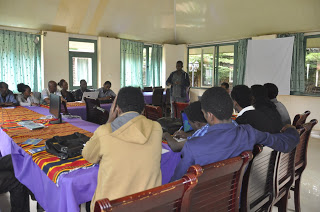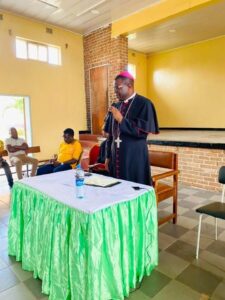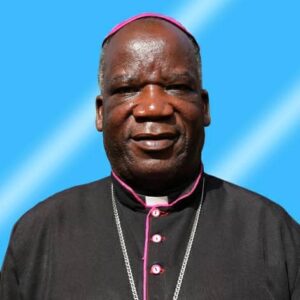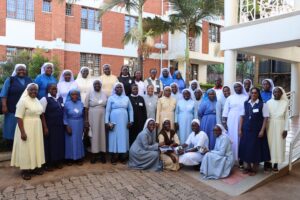ETHIOPIA: Catholic Church encourages using ICT for a more efficient development work

Photo of the participants during the sessions
Ethiopian Catholic Church Social and Development Commission (ECC SDCO) organized an Information and Communication Technology (ICT) capacity building workshop, for government and project experts in ECC SDCO Coordinating Office of Soddo. The training was organized by SAFE project with support from EU and Caritas Belgium.
According to Ato Kinfu Guta, project coordinator, the training aimed at supporting the district implementing partners with developing resource centers using IT technology.
“Such short trainings allows partners to refresh their minds with updated ICT knowledge which allow them to keep up with the latest technology in maintaining data and using digital means to collect and analyse agricultural information that will be used as a baseline information for project implementation and plan,” he said
The participants came from the agricultural office and planning sector of 3 districts namely Damot Pulasa, Dugna Fango and Boloso Sore districts of Wolyta Zone of South Nations, Nationalities and Peoples Regional State where “Sustainable Agriculture and Food Security Enhancement through Integrated Recovery Support Mechanisms (SAFE) project is being implemented.

The 4 days training was followed by a 1-day discussion session with Zonal and District representatives, unemployed rural youths who get off farm job by the project and project development workers. The discussion allowed beneficiaries to raise some of their challenges to concerned bodies for further success and it also created an open space for experience sharing among beneficiaries and development workers from different districts.
During the occasion, the zonal and district representatives commended ECC SDCO for the successful implementation of SAFE stating that it has brought about visible changes in the lives of household headed families and unemployed youth by providing them alternative means of income. It was also stated that one of the beneficiary youth groups is selected based on its success to be presented as a model group at a regional level.
The project includes increased livestock productivity, increased assets and income from livestock for women, better market opportunities for cooperatives for livestock and livestock products, off-farm job creation for unemployed rural youths, build the capacity of the Woreda government offices and community institution.
By Makeda Yohannes, CBCE Communications and Public Relation Office, Ethiopia


